Paris Agreement - A great milestone in history
(Baonghean.vn) - The signing of the Paris Agreement in 1973 not only had great significance in Vietnam's history, but was also a milestone in the history of international relations.
Exactly 44 years ago, on January 27, 1973 in Paris, the "Agreement on Ending the War and Restoring Peace in Vietnam", abbreviated as the Paris Agreement on Vietnam, was signed. The agreement forced the US to recognize Vietnam's independence, sovereignty, unity and territorial integrity, and to withdraw all US and vassal troops from South Vietnam.
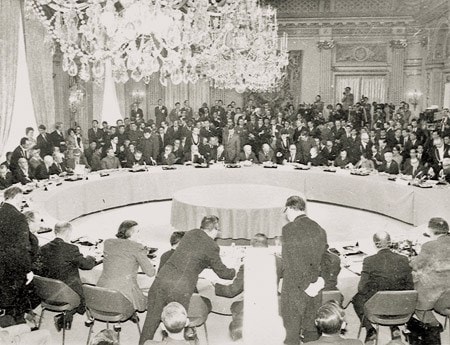 |
| Panorama of the Paris Conference on ending the war in Vietnam. |
This international legal document is the result of the most arduous and longest diplomatic struggle in the more than 50-year history of Vietnam's revolutionary diplomacy. The US's signing of the Paris Agreement was an extremely great victory, creating a favorable situation for the struggle of the Vietnamese people to liberate the South and unify the country.
The Paris negotiations lasted for 5 years, from March 15, 1968 to January 27, 1973. The negotiation period under President Johnson took place from March 15, 1968 to October 31, 1968. At the end of this period, Johnson announced an end to bombing and accepted the National Liberation Front of South Vietnam (NLF) to participate in the Paris Conference.
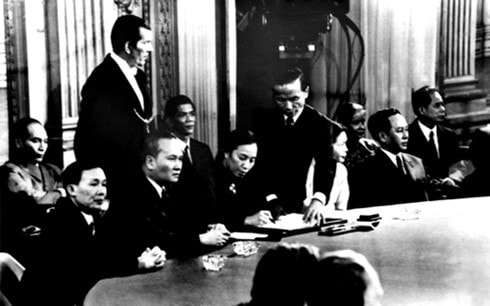 |
| Minister of Foreign Affairs of the Provisional Revolutionary Government of the Republic of South Vietnam Nguyen Thi Binh signed the Paris Agreement on Vietnam (January 27, 1973). (Photo courtesy) |
In January 1969, Nixon took office as US President. On January 18, 1969, the first session of the 4-party conference was held in the form of a round table, with the delegation of the National Liberation Front of South Vietnam standing on the same level as the other delegations. At the negotiating table, a fierce battle of wits took place between the negotiating parties, especially between special advisor Le Duc Tho and US President Kissinger's assistant.
On October 8, 1972, the Vietnamese delegation presented the US with a draft Agreement with provisions requiring the US to withdraw all troops from South Vietnam. Initially, the draft was agreed upon by all parties, but on October 22, 1972, the US side reneged, citing the Nguyen Van Thieu administration to demand amendments to the draft.
On December 12, 1972, the negotiations had to be suspended. On the night of December 18, 1972, President Nixon ordered the bombing of Hanoi and Hai Phong by B52. The historic confrontation of 12 days and nights, dubbed the "Dien Bien Phu in the air", ended with 38 "B52 flying fortresses" and 43 other American fighter planes exploding right in the sky of Hanoi. This was the most decisive blow, forcing Nixon to declare a halt to bombing from the 20th parallel north and request that the US side meet the Vietnamese delegation in Paris to sign an agreement to end the war.
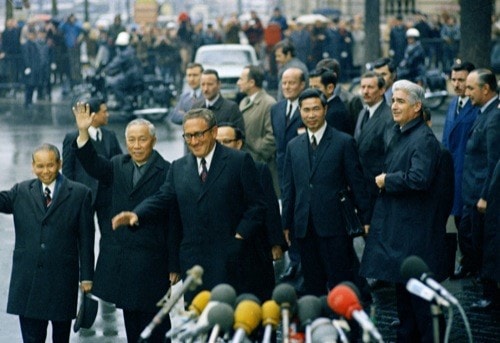 |
| From left: Mr. Xuan Thuy, Mr. Le Duc Tho and Mr. Henry Kissinger wave to the people after the last meeting between the parties at the International Conference Center in Paris ended on January 23, 1973. |
On January 23, 1973, advisor Le Duc Tho and US President Kissinger initialed the Agreement. On January 27, 1973, the official signing ceremony of the Agreement took place in Paris, forcing the US to withdraw from the South, at the same time collapsing US neo-colonialism, ending the war, and restoring peace in Vietnam.
The source of the victory of the Paris Conference was the spirit of determination to fight and win, the indomitable will to fight persistently to protect the truth and gain independence and freedom for the entire Vietnamese people. This struggle fully reflected the talented leadership of the Communist Party of Vietnam and President Ho Chi Minh, the wisdom of Vietnam's revolutionary diplomacy, based on the justice of the national liberation struggle.
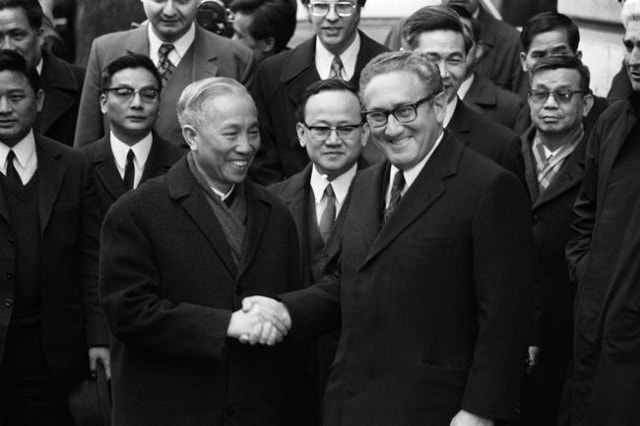 |
| Mr. Le Duc Tho shook hands with Mr. Henry Kissinger after the parties initialed the Paris Agreement on January 23, 1973. The US being forced to sign the Paris Agreement was a great victory, creating a favorable situation for the struggle to liberate the South and unify the country. Photo: AFP |
The Paris Conference and the Paris Agreement will forever go down in the history of the Vietnamese revolution in general and Vietnamese diplomacy in the Ho Chi Minh era in particular as an indelible mark. The Paris Agreement is also inevitable evidence of the just struggle of the Vietnamese people, which has received strong support from progressive people around the world.
Unlike the history of world diplomacy such as the Teheran, Yanta, and Potsdam Conferences, the success of the negotiations leading to the Paris Agreement was closely linked to the movement of the world's people uniting and supporting Vietnam. Vietnam received great help from the Soviet Union, China, the Socialist countries, the wholehearted help of the French Communist Party, the French people, the left-wing movement, the non-aligned movement, the people of capitalist countries, the American people, and the anti-war movement of American soldiers.
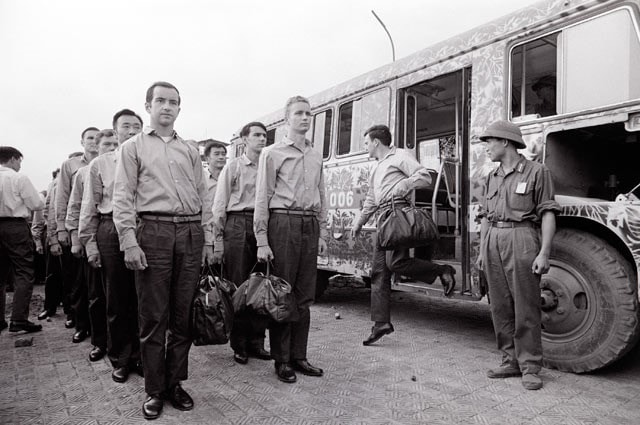 |
| On March 29, 1973, the US Command in Saigon held a flag-lowering ceremony. The last group of US troops withdrew from South Vietnam. |
The formation of the world people's front supporting the Vietnamese people has demonstrated the motto of combining national strength with the strength of the times, national strength with international strength, combining state diplomacy with people's diplomacy.
44 years have passed, like many members of the two Vietnamese negotiating delegations in the past, the French friends or Vietnamese people in France at that time are now some still alive, some have passed away or are old and weak. But history has recorded that they - with their individual actions like separate pieces - have formed a solid wall along with the will of the Vietnamese people to successfully protect the peace of the Vietnamese nation. History will never forget their contributions.
Peace
(Synthetic)
| RELATED NEWS |
|---|


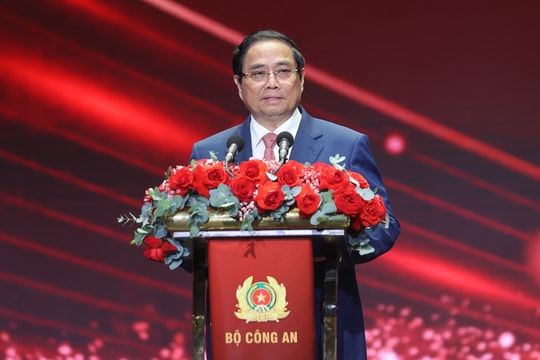
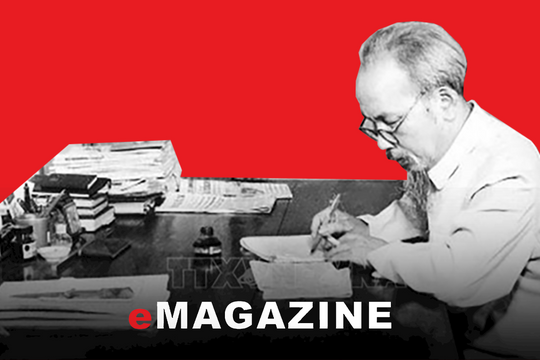

.jpg)

.jpg)
